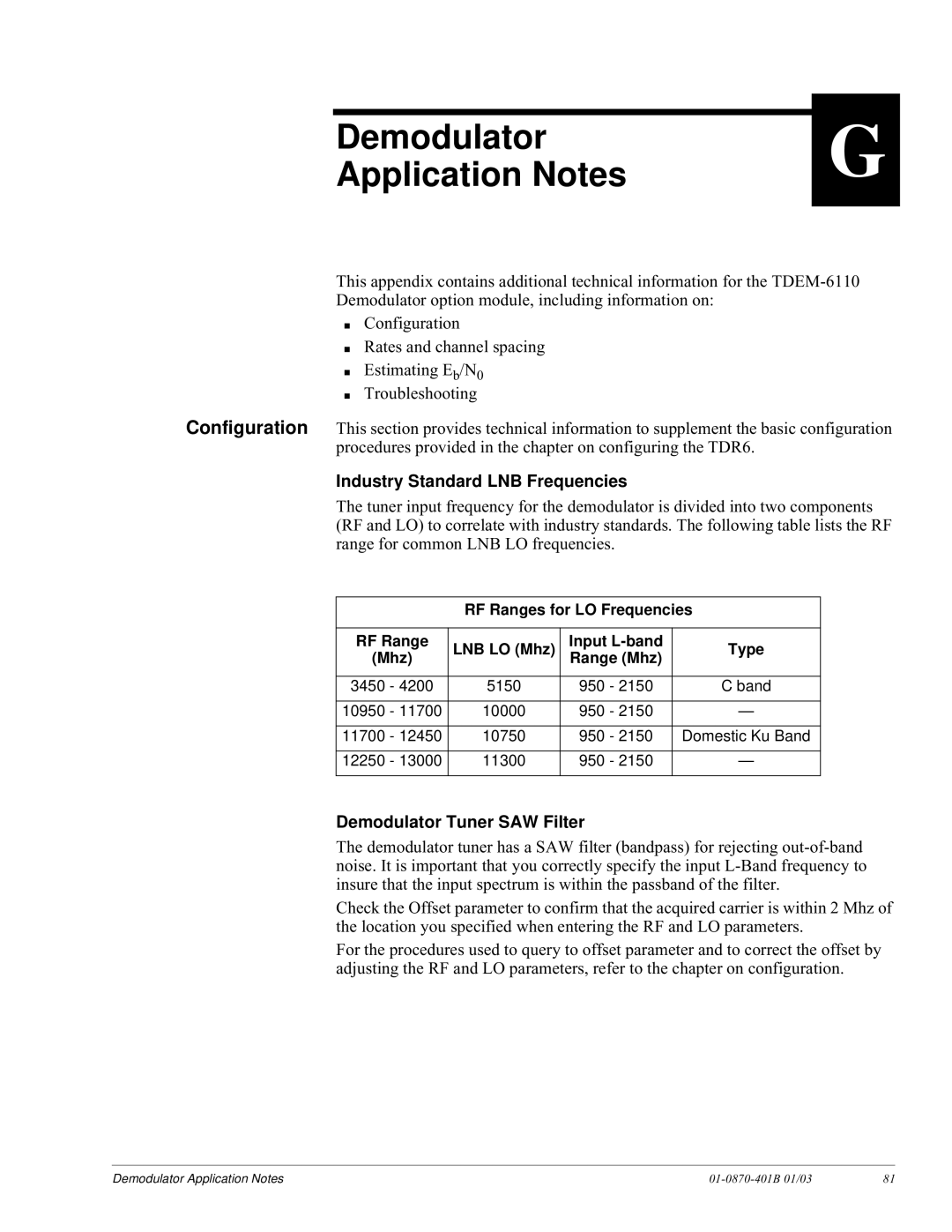
Demodulator Application Notes
G
This appendix contains additional technical information for the
Demodulator option module, including information on:
■Configuration
■Rates and channel spacing
■Estimating Eb/N0
■Troubleshooting
Configuration This section provides technical information to supplement the basic configuration procedures provided in the chapter on configuring the TDR6.
Industry Standard LNB Frequencies
The tuner input frequency for the demodulator is divided into two components (RF and LO) to correlate with industry standards. The following table lists the RF range for common LNB LO frequencies.
RF Ranges for LO Frequencies
RF Range | LNB LO (Mhz) | Input | Type | ||
(Mhz) | Range (Mhz) | ||||
|
| ||||
|
|
|
|
| |
3450 | - 4200 | 5150 | 950 - 2150 | C band | |
|
|
|
|
| |
10950 | - 11700 | 10000 | 950 - 2150 | — | |
|
|
|
|
| |
11700 | - 12450 | 10750 | 950 - 2150 | Domestic Ku Band | |
|
|
|
|
| |
12250 | - 13000 | 11300 | 950 - 2150 | — | |
|
|
|
|
| |
Demodulator Tuner SAW Filter
The demodulator tuner has a SAW filter (bandpass) for rejecting
Check the Offset parameter to confirm that the acquired carrier is within 2 Mhz of the location you specified when entering the RF and LO parameters.
For the procedures used to query to offset parameter and to correct the offset by adjusting the RF and LO parameters, refer to the chapter on configuration.
Demodulator Application Notes |
| 81 |
